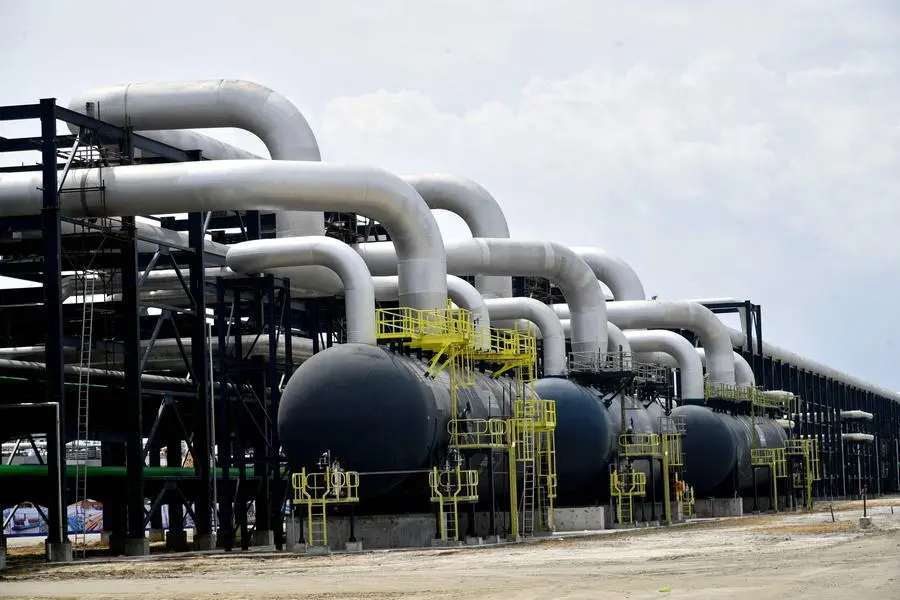PHOTO
In confirmation of our long-held view that governance in this clime has been often no more than a superstructure erected on the people’s pain, the Bola Tinubu-led government sprung a new surprise on Nigerians last week. Just as Nigerians were rejoicing that the $20 billion, 650,000-barrels-per-day Dangote Refinery was set to finally roll out Premium Motor Spirit (PMS), news filtered through that the Nigerian National Petroleum Company Limited (NNPCL) had increased the pump price of Premium Motor Spirit (PMS), commonly known as petrol, to ₦855 per litre from the previous ₦617 per litre at its retail outlets. Motorists and commuters alike were shell-shocked, and flocking to nearby NNPC retail outlets to refuel proved to be a futile exercise. Other major marketers quickly adjusted their pump prices to reflect the new rate. Where the product is available at all, a litre of fuel now costs between N1,000 and N1,200 in many parts of the country.
Reacting to the development, the Federal Government denied a report suggesting that the Ministry of Petroleum Resources had ordered the NNPCL to sell fuel at N1,000, quite above the approved pump price. A statement signed by Nnemaka Okafor, Special Adviser, Media and Communication to the Minister for Petroleum Resources (Oil), Heineken Lokpobiri, gave this alibi: “The Federal Government is compelled to address the outright falsehoods currently being circulated on social media, which claim that the Minister of Petroleum Resources (Oil), Senator Heineken Lokpobiri, has directed the NNPCL to inflate petroleum prices above the approved pump price. We categorically condemn these claims as baseless, malicious, and a deliberate attempt to incite public discontent…It must be stressed that NNPCL operates as an independent entity under the Companies and Allied Matters Act, with a fully empowered Board of Directors. The Ministry of Petroleum Resources does not, and will not, interfere in the internal decisions of NNPCL, including pricing matters. Any suggestion otherwise is not only incorrect but also reveals a profound misunderstanding of the deregulated nature of Nigeria’s petroleum sector.”
Following the astronomical increase in the pump price of PMS, transport fares surged by over 50 percent in many parts of the country even as those previously car-pooling had to abandon the initiative altogether. In many parts of the country, car owners were reported to have sold off their cars and bought motorbikes in order to cope with the unbearable cost of fuel. The prices of food items, hitherto beyond the reach of average Nigerians, increased even further, while most parents agonized over the surge in school fees following the terrible developments in Nigeria’s oil sector. Private car owners trekking long distances to work has become routine, as is the ugly spectacle of market (wo)men singing dirges about their inability to feed.
Sadly, it seems that the government, which precipitately rolled out its fuel subsidy removal and naira floatation policies without building any shock absorbers into the system, does not want the masses to survive. As things stand, even the N70,000 minimum wage that most workers are yet to receive is now grossly inadequate in the face of the unbearable cost of living. The situation is, to say the least, distressing. A government that has stoutly refused to refine the crude oil that Nigeria is abundantly blessed with has also actively undermined private initiatives to take Nigerians out of the oil curse. For ages, Nigerian leaders have kept the refineries of other countries busy while Nigeria’s have rotted away in spite of the humongous sums expended on the so-called turnaround maintenance. The refineries remain moribund. In October last year, the Senate said it was probing the estimated N11.35 trillion ($25 billion) spent on the renovation of Nigeria’s four refineries between 2010 and 2020. Under the current administration, different failed dates have been given for one of the refineries to begin operations once again. Meanwhile, the astronomical increment in the pump price of fuel continues to have deleterious effects on businesses, the economy, manufacturing and daily living.
The government seems to be at a loss regarding what constitutes its real responsibilities, especially in relation to the masses of Nigerians. It has been inflicting monumental deprivation and hardship on them without a thought as to how they are to survive within the context of the debilitating environment spawned by its policies and actions. How could a government believe that its citizens will be able to survive an increment in petrol prices from N198 per litre at its inception to the new reality of paying between N900 and N1,200 naira per litre without any special interventions to raise the purchasing power of the people? And yet, the current government is presiding over the gradual and sustained decline in production as attested to by the diminishing Gross Domestic Product (GDP), which ordinarily will keep reducing the purchasing power of the people even while the prices of basic products are escalating in the market, including the price of petrol dictated exclusively by the government.
The government has to make up its mind on whether or not it wants to preside over the eventual extermination of Nigerians in order for it to justify what is turning out to be its weird rule. Since it came on board, Nigerians have had no cause for cheer. The people have been pauperised and dehumanised beyond measure, whereas governance ought to be a ministry of happiness, what the sage, Chief Obafemi Awolowo, tagged Life More Abundant. It is difficult to come to terms with the perpetual assaults on the purchasing power of Nigerians through endless increases in the price of PMS.
Copyright © 2022 Nigerian Tribune Provided by SyndiGate Media Inc. (Syndigate.info).




















